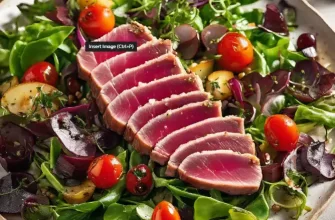In the contemporary era of rapid pace and immense pressure, hypertension has emerged as a prevalent health concern. If left unmanaged, it can result in severe medical conditions like cardiovascular disorders, stroke, and renal ailments.
Nonetheless, there is a silver lining as there exist numerous efficient methods to reduce blood pressure levels and maintain them within a desirable range for overall health.
- Eat a healthy diet: To begin with, prioritize eating a diverse diet that consists of fruits, vegetables, whole grains, lean proteins, and low-fat dairy products. Restrict your consumption of salt, saturated fats, and added sugars, as they can lead to elevated blood pressure.
- Maintain a healthy weight: Losing excess weight can have a significant impact on reducing your blood pressure. Strive to have a body mass index (BMI) that falls within the healthy range and make sure to regularly engage in physical activities in order to reach and sustain a desirable weight.
- Exercise regularly: Participating in aerobic activities like fast walking, running, swimming, or biking for a minimum of 150 minutes every week can contribute to the reduction of your blood pressure. Furthermore, including two days of strength training exercises can amplify these advantages.
- Stop alcohol consumption: Drinking alcohol can increase your blood pressure. Consuming alcohol in any amount is an evil to one’s health and self.
- Quit smoking: Smoking harms the blood vessels and raises the likelihood of developing high blood pressure. Ceasing smoking not only lowers blood pressure, but also enhances overall well-being and decreases the possibility of other long-term illnesses.
- Manage stress: Long-term stress can lead to an increase in blood pressure. Discovering and adopting healthy methods to handle stress, such as practicing relaxation techniques, pursuing hobbies, spending quality time with loved ones, or embracing activities like yoga and meditation, can be beneficial.
- Limit caffeine intake: Although caffeine does not lead to a permanent increase in blood pressure, it can result in a temporary elevation. Keep track of your caffeine intake, especially if you observe a sudden surge in blood pressure following the consumption of caffeinated drinks.
- Monitor your blood pressure regularly: Frequently monitoring your blood pressure at home with a blood pressure monitor can assist you in staying aware of any changes and promptly taking action to address them.
- Reduce sodium intake: Fluid retention and elevated blood pressure can be attributed to the consumption of sodium. It is advisable to carefully examine the nutritional information on food packaging and opt for products with reduced sodium content whenever feasible. Steer clear of processed and fast foods, since they typically contain excessive amounts of sodium.
- Get enough sleep: Getting enough sleep is crucial for keeping your overall health in check, which includes maintaining healthy blood pressure levels. Strive to get around 7-8 hours of uninterrupted and high-quality sleep every night.
It is crucial to keep in mind that adopting these changes in your lifestyle may require patience and dedication. It is recommended to seek guidance from your healthcare provider in order to find the most effective method for managing your blood pressure, particularly if you have preexisting medical conditions or are taking medication. By implementing these beneficial adjustments to your daily routine, you can actively work towards lowering your blood pressure and enhancing your overall well-being.









